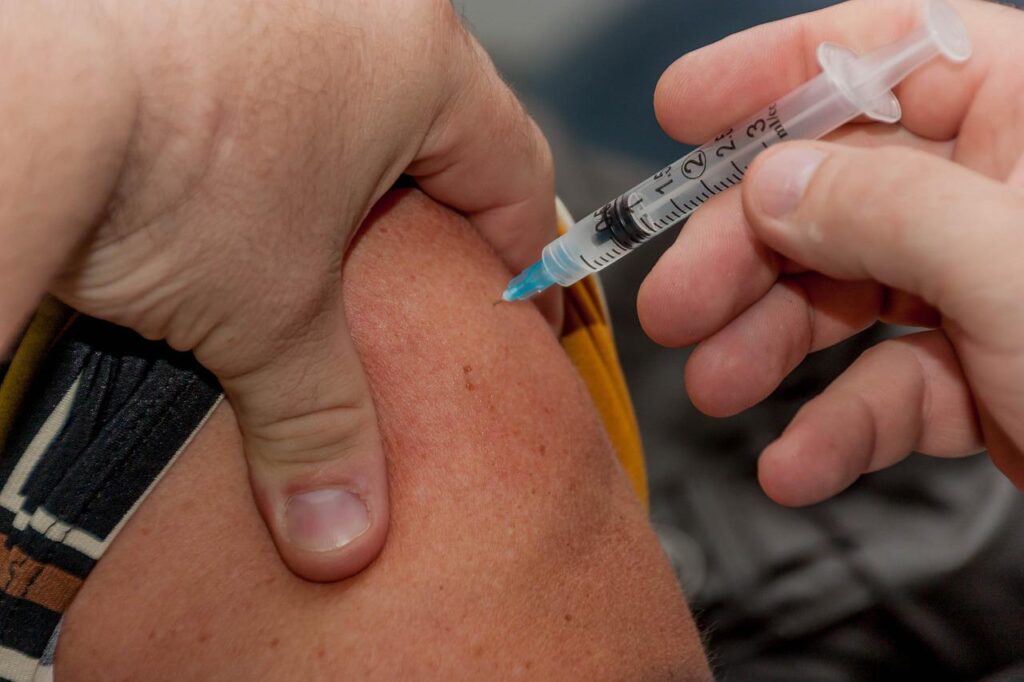A Bird Flu Vaccine Is In The Works, What You Need To Know
Scientists are working to develop a vaccine for two common strains of avian flu after the virus gained the ability to spread from birds to mammals.
This article is more than 2 years old

Scientists and epidemiologists across the globe are busy preparing for the next pandemic—whatever and whenever it may be. From developing vaccines to improving and streamlining distribution methods, these scientists all agree that it’s not a matter of if there’s another pandemic, but when the next pandemic hits. After alarming outbreaks of bird flu among avian populations this year and last, many think it’s the most likely to reach the human population, and some research centers are even working to preemptively develop vaccines.
Earlier this month, the Access to Advanced Health Institute in Seattle received $9.9 million from the U.S. government to use in developing vaccines against two of the deadliest bird flu viruses, H7N9 and H5N1. According to GeekWire, H5N1 has circulated for years among bird populations, but has only recently made its way into a mink farm in Spain, causing concern that the virus may have evolved to spread to mammals as well, not just birds. H5N1 turning into another pandemic, one that would likely be worse than COVID-19, is a worst-case scenario, but one many scientists still believe we need to be preparing for.
Though H5N1 has a significantly higher mortality rate than COVID, researchers are hopeful that a more advanced and prepared vaccine would help limit the spread and the number of fatalities. The Access to Advanced Health Institute’s vaccine will be RNA-based, like the Moderna and Pfizer vaccines used to inhibit the spread of COVID-19. Recent studies show that, with the right formulation and development, RNA-based vaccines can be made into powders and stored at room temperature or in a refrigerator, making transportation, storage, and stockpiling significantly easier than it was for the new, temperamental COVID vaccines when they first became available.
A spokesperson for the Access to Advanced Health Institute said that they hope to have a prototype of the bird flu nasal vaccine within forty months. This may seem like a lengthy process, but researchers are hopeful that their headstart against other potential pandemics, like bird flu, are able to help prevent the type of worldwide chaos and shut down that we saw at the beginning of COVID-19 in 2020. In the recent past, the government has not allocated significant funds toward epidemiology, but the last few years have shown just how important this field is.
One of the biggest struggles in getting wary U.S. citizens to vaccinate was the argument that the vaccine had been produced too quickly and with too little testing. Studying, testing, and preparing vaccines years in advance may help alleviate concerns and encourage a higher vaccination percentage among the population. And with $9.9 million at their disposal, the Access to Advanced Health Institute has the resources to do it.
While in some ways the world is more prepared for another pandemic in the wake of COVID-19, many are now desensitized to it and are tired of the necessary precautionary measures, like masking and social distancing. The reality is that, as tragic and devastating as COVID was, a bird flu pandemic would cause nearly thirty times the number of deaths as COVID-19, just another reason for the U.S. to invest in the research and stay prepared.




